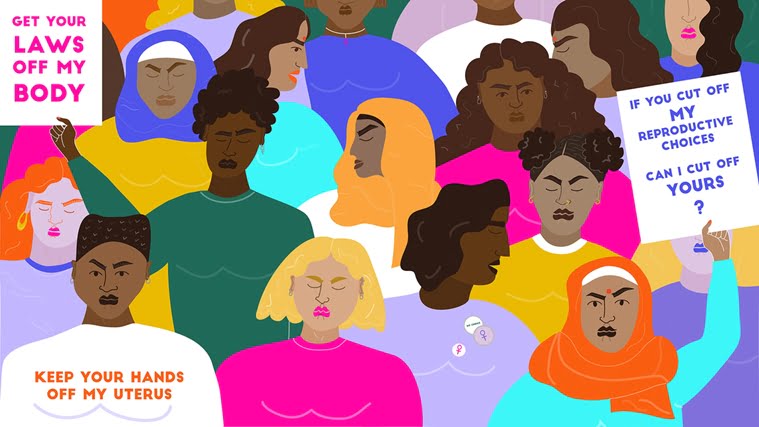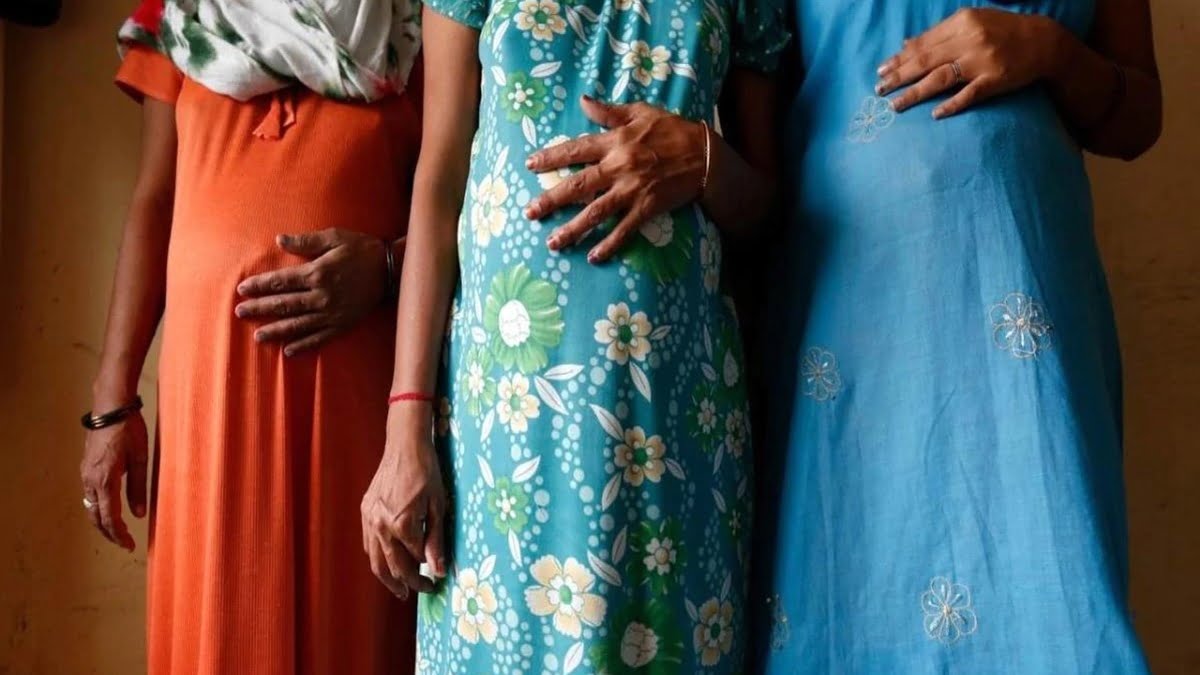“Privacy” has been one of the many buzzwords driving the predominant discourses in our country. But as it often happens, its essence has been vitiated as it distills down the popular imagination. Privacy rights have their implications, even legal, countermanding Mukul Rohatgi’s claim in 2015, a nine-judge bench of the court unanimously upheld the constitutional guarantee to the right to privacy. But some peoples’ rights are more alienable than others. And of a people, women’s privacy rights are seemingly more disposable in our country.
So what does privacy actually mean? Privacy, in its essence, entails protection from intrusion. It also includes the right to bodily integrity, which derives controversies from cultural influences. A good example of that is, abortion and the legal mores that define the termination of pregnancies. It also extends to the right to privacy in public spaces, the ambit of which may differ significantly with the country in question.
UNPIN, the acronym for United Nations International Conference on Population and Development, in its statutes of 1994, recognises reproductive rights as a part of personal autonomy, endowing an individual to make sexual and reproductive decisions and includes within it the right to safe abortion along with access to contraception. Opinions on abortion are divided by cultural influences and religious mores: “About three-quarters of white evangelical Protestants (77 per cent) think abortion should be illegal in all or most cases.”

Privacy rights have their implications, even legal – countermanding Mukul Rohatgi’s claim in 2015, a nine-judge bench of the court unanimously upheld the constitutional guarantee to the right to privacy. But some peoples’ rights are more alienable than others. And of a people, women’s privacy rights are seemingly more disposable in our country.
About a quarter of the countries in the analysis (50 countries, or 26 percent) only allow abortions to save the life of the mother. An additional 82 nations (42 percent) allow abortions when the mother’s life is at risk as well as for at least one other specific reason, such as to preserve a woman’s physical or mental health, in cases of rape or incest.
Where do we stand on these issues in India? Reproductive autonomy, under the umbrella of privacy rights, is guaranteed under the Human Rights Laws, ratified by the Union of India, it is in accordance with Article 51(c) of the Constitution of India. Given the second-most populous country’s squalid access to contraceptives, abortion laws are at prodigious moment right now.
A much-needed amendment to the Medical Termination of Pregnancy (MTP) Act, 1971, has extended the permissible gestation age to about 24 weeks. Before the amendment, if the pregnancy were to exceed 20 weeks, termination was permitted in cases only when there was some discernible risk to the life of the female in question.
Also read: Two Women, A Child, And The Right To Privacy
The Center of Reproductive Rights delineates the plight of many women facing extreme hardships over the sclerotic act. A case of a 35-year-old woman, having been denied an abortion in her 17 weeks of pregnancy, harassed over parental/ spousal consent, drives the point home. It lays bare the cracks in the application of the law, even when they exist to champion the said rights.
Sheetal, a 28-year-old woman from Mumbai, has a similar story. It was clear the development of her fetus’s brain was unlikely. Her request was post-20 weeks of pregnancy and was denied. The judgment was adverse to her bodily volition and apathetic to her suffering. And she is one of the many. A 1996 study in rural Maharashtra reveals that only around 3 per cent of the MTP’s took place after 20 weeks. There have been innumerable references in Indian courts in this regard, especially in cases involving MTP after a period of 20 weeks.
The mental suffering post the 20-week period of pregnancy is patently inimical to the statutes of privacy laws. The female in question, much to her indignation, may be compelled to undergo treatments she does not willingly consent to, with the treatment often being at the volition of a panel of strange doctors, rigorous physical exams, smirch from public scrutiny, and dilatory proceedings that may not culminate in any requite.
While the much-needed change in the gestation period is in, the existing laws are not enough. For a gestation period within the 12-week time period, the MTP necessitates the consent of one medical practitioner. In the period between 12 weeks and 24 weeks, the consent of two medical practitioners is mandatory. In both these cases, the consent of the woman is however seized and supplanted by the consent of the practitioners, rendering their sexual autonomy in the hands of doctors.
The mental suffering post the 20-week period of pregnancy is patently inimical to the statutes of privacy laws. The female in question, much to her indignation, may be compelled to undergo treatments she does not willingly consent to, with the treatment often being at the volition of a panel of strange doctors, rigorous physical exams, smirch from public scrutiny, and dilatory proceedings that may not culminate in any requite.
Private identity is a sine quo non for the individual development of a person, taking different auspices in different countries – security of the person in Canada (Canadian Charter of Rights and Freedoms) and human dignity in Germany (Basic Law for the Federal Republic of Germany), for instance. The growing concerns about surveillance and privacy are not without merit, the UIDAI (the center of the discussion in the landmark judgment by the Supreme Court) maintains a data portal that allows third-party developers to work on top of its aggregated biometric data, which matches 200 billion biometrics a day and handles 100 million authentication requests.
Mother and Child Tracking System (MCTS) is another surveillance effort aimed at welfare, which runs the risk of data leakages and privacy obstructions because of its real-time capturing of granular data, encompassing everything from neo-natal to post-natal period. Aimed as a surveillance of the “have-nots”, the socio-economic situations incorporate little contextual individuality, subsuming their individual needs in socio-economic markers. Data breaches also put these women at risk of social ostracisation due to stigma. Given that private health care is relatively big in India, the monetisation of reproductive health is a possible consequence, as the existing business models of most healthcare apps are based on the value of the aggregated data.
Also read: #MyBodyMyRights And The Appalling Privacy Violations Of Aadhaar
Several rulings in India have emphasised the dubious safety of the abortion beyond the 20-week gestation period as an expedient precedent to deny the right to pregnancy, which is in stark contrast with the World Health Organization’s position which maintains that when practiced in accordance to the accepted medical standards, induced abortion is a very safe procedure.
A study in The Lancet Global Health estimates an abortion rate of 47 per 1,000 women aged 15-49 in India. The number of abortions also is put at 15.6 million in 2015 in the estimate, stressing on the ubiquity of abortion in our country. With millions of women battling these flagrant human rights violations in our country, the issue is as pressing as it is consequential. With the paltry legal awareness that the women in India have, the situation is bleaker than what it seems on the surface.
Handicapped by the inability to avail legal resources, many pregnant women find their voices drowning in the existing legal system. At odds with their interests, the institutional framework has failed their right to privacy and has failed their bodily autonomy.
Neelanchal is a student of Computer Science and an avid reader of all things under the sun. He is also quite taken with the written word. He can be found on Quora, Facebook and Instagram.
Featured Image Source: NewsClick.In




